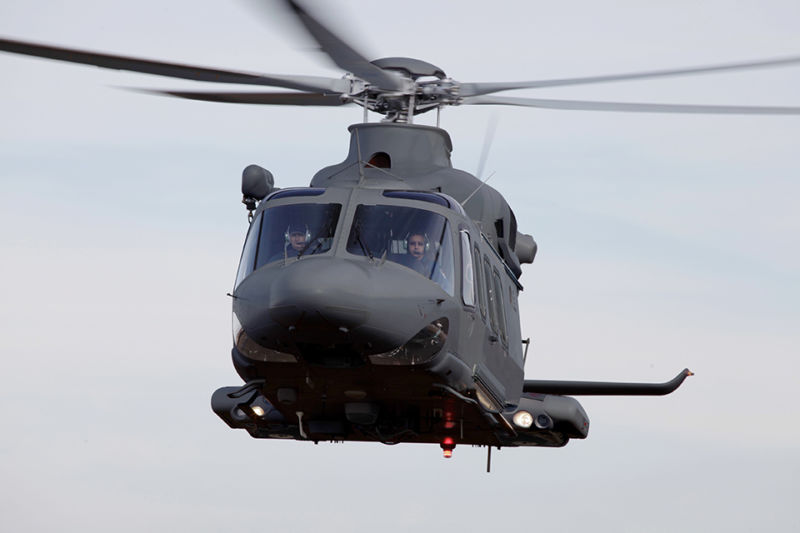Blackhawks beaten out by Italian-designed copter for Air Force UH-1 replacement

Enlarge / A military version of the Leonardo AW139 flown by the Qatar Emiri Air Force. A US version, built in partership with Boeing, has won the US Air Force's nuclear security helicopter competition. (credit: Boeing)
Just in time to avoid the end of the fiscal year, the US Air Force has finally selected a successor to the aged UH-1 Hueys used by the Air Force's nuclear missile security force: the MH-139, a militarized version of the AgustaWestland AW139 from the Italian aerospace and defense company Leonardo. The MH-139 was a joint bid by Leonardo and Boeing and will be built in the United States at Leonardo's facilities in Philadelphia. The award this morning is for $375 million, covering delivery of the first four helicopters. But the overall program could be worth up to $2.4 billion, delivering up to 84 helicopters, as well as training systems and support equipment.
The MH-139 beat out two separate bids to provide helicopters based on the Lockheed Martin Sikorsky H-60 Blackhawk-one from Lockheed for a new variant based on the helicopter being built for the Air Force's special operations squadrons, and another from Sierra Nevada Corporation that would have refurbished retired US Army UH-60s with new avionics. The competition had been held up by a pre-award protest by Lockheed Martin, and there had been concern that the Air Force would not be able to make a selection in time to avoid having to go back to Congress for reauthorization of the purchase.
The Blackhawk was the original pick to win the program, which the Air Force had intended to simply sole-source to Sikorsky. But then the service's procurement team decided to put the program up for bid, and the competition paid off for the Air Force. The overall price tag of the helicopter program came down considerably from what the Air Force originally expected to pay-an estimated $4.1 billion. "Strong competition drove down costs for the program, resulting in $1.7 billion in savings to the taxpayer," said Secretary of the Air Force Heather Wilson in a statement on the award.
Read 3 remaining paragraphs | Comments